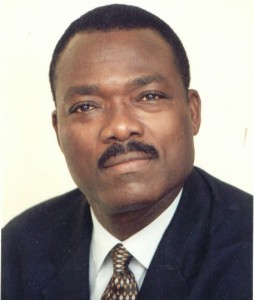Stop the controversy geared toward dividing the African American family
By Soumanou Salifou

Founder/Publisher/CEO
The stunning admission of Kwasi Enin, a 17-year-old student of Ghanaian origin who attends William Floyd High School – a public school on Long Island’s south shore in New York state – to all eight Ivy league universities has triggered an unnecessary controversy stemming from a statement made by IvyWise CEO Katherine Cohen who was quoted in a USA Today‘s profile on Kwasi Enin as saying: “He’s not a typical African-American kid.” In her comments aimed at explaining Enin’s circumstances, Cohen also stated that the young man’s being a first-generation American from Ghana also worked in his favor, as did his gender, given American colleges’ current struggle to reach an even female/male ratio in the student population that now comprises 57% of females.
Cohen’s comments, “He’s not a typical African-American kid,” was interpreted by some as the insinuation – which probably was not Cohen’s intention – that native African Americans are lazy. That quickly ignited a controversy about the alleged negative perception of native African Americans by some of us who were born in Africa, or even by our children. One of the many reports that were posted online about this controversy mentioned the use of the word “akata,” (“wild animal” in Yoruba, a language spoken in Nigeria) by some Africans, especially Nigerians, to refer to African Americans. The reports also stated that some white people view us, continental Africans, as “more polite, less hostile, more solicitous and easier to get along with,” contrary to native African Americans. A reporter dragged in Harvard University professor and civil rights activist Lani Guinier to weigh in the debate.
This is not a new debate. Back in the early 1980s when I arrived in Washington, D.C. as a foreign student at the Johns Hopkins University’s School of Advanced International Studies (SAIS), I experienced situations, outside the school, where myself and other students from Africa were better treated than black Americans by some non-black people who did not seem necessarily ill-intentioned. That got to the head of some of us – fortunately not all of us, definitely not me. I remember a fellow African student who ridiculed another African student who he felt “was trying to speak like a black American” (the Rev. Jesse Jackson had not yet coined the name “African American”). To say that all the black brothers that I knew then were absolutely nice to us, Africans, would be a lie. I remember hearing uneducated black American brothers shout that Africans must go back to Africa.
But times have changed and our society has evolved significantly. Just like anti-gay sentiments seem to have plummeted overnight without anyone noticing, and just like the once serious superiority complex that some light-skinned Blacks harbored vis-a-vis dark-skinned Blacks, I believe, has died out, this covert ill-feeling (for lack of a softer word) among native African Americans and the newly-arrived ones is largely a thing of the past. The use of akata, for instance, is more an attempt to talk sexy than an actual expression of hatred toward our African American brothers and sisters. Not unlike other families, the black family has its own passing moments of “family feud” that are no greater than the TV show of the same name hosted by brother Steve Harvey
I think it’s irresponsible for anyone, especially the press, to blow out of proportions the comments made by IvyWise CEO Katherine Cohen, regardless of how one interprets them.


